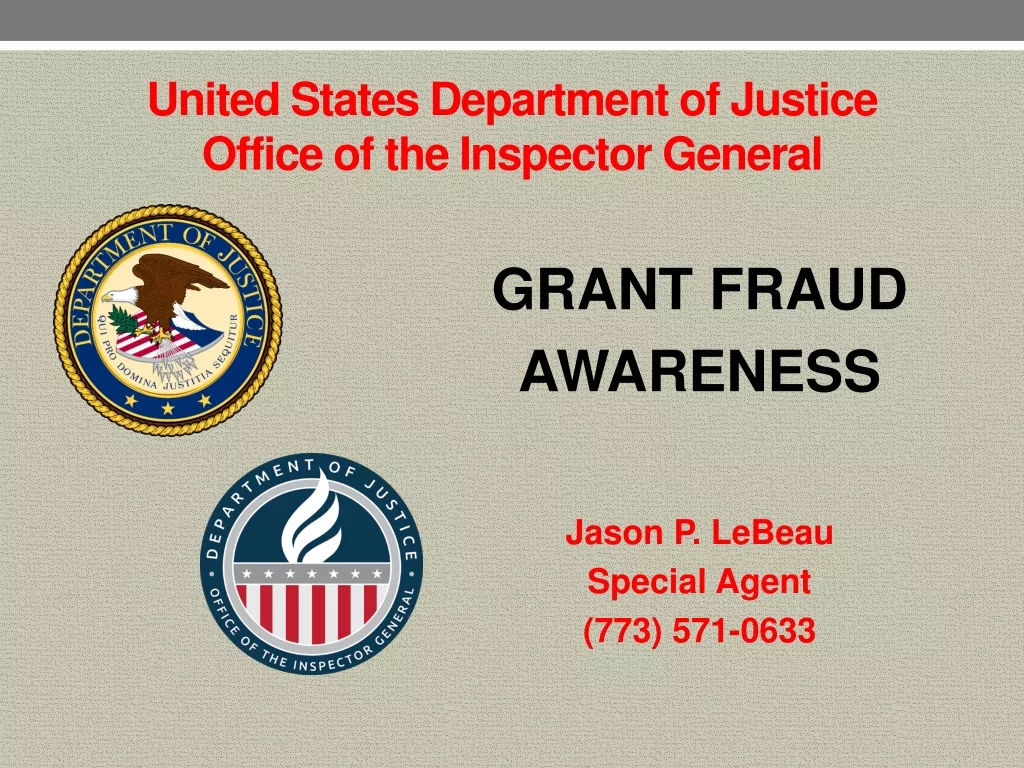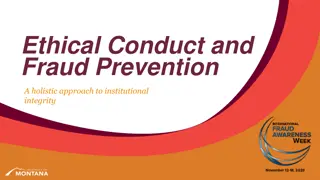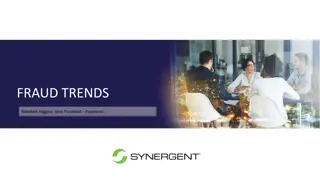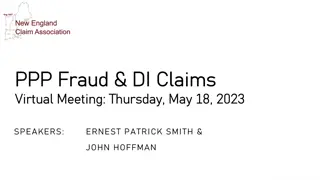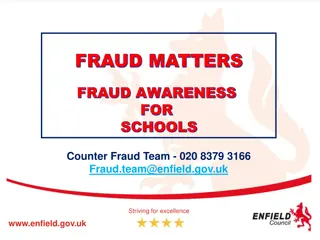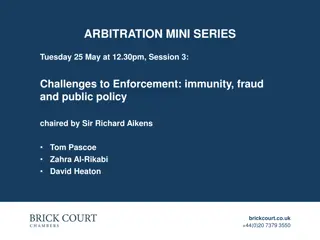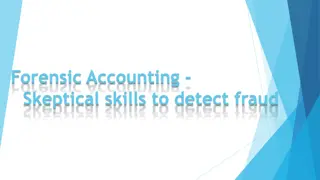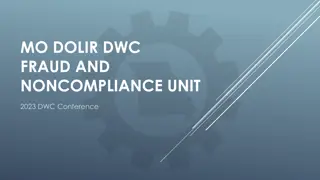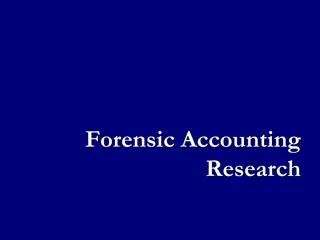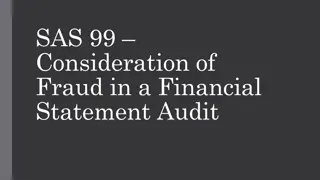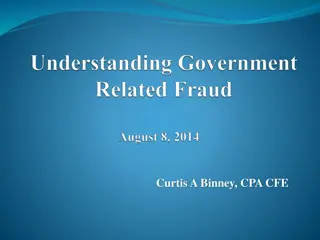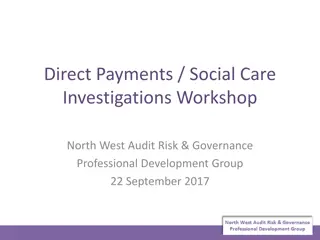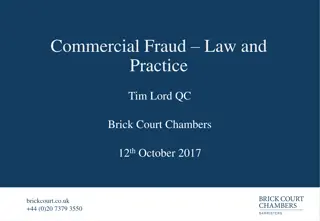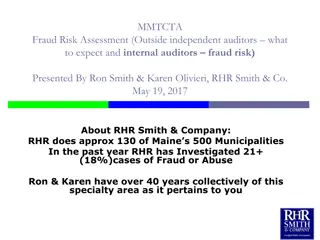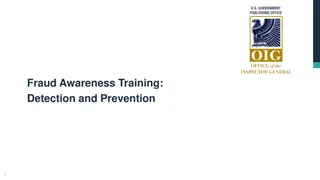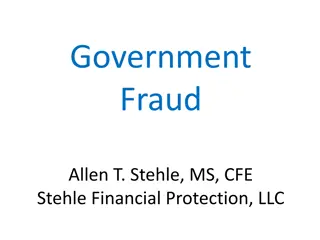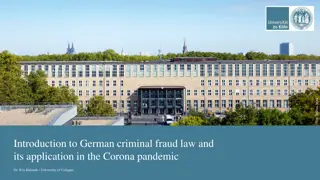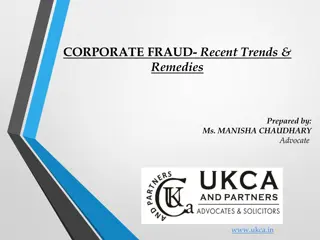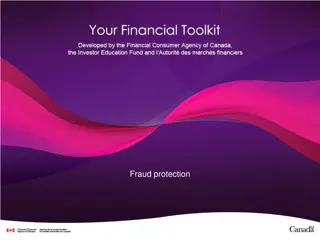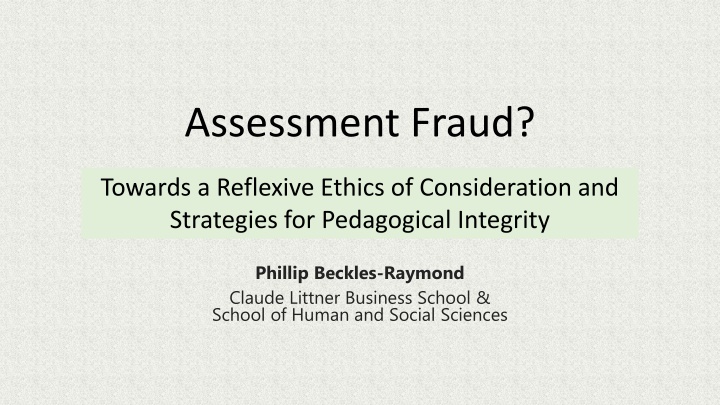
Ethics and Integrity in Higher Education Assessment
Explore the ethical considerations and strategies for maintaining pedagogical integrity in higher education assessment. Delve into the potential risks of fraudulent promises in education, discussing disparities in attainment and challenging traditional perspectives. Case studies highlight the importance of aligning outcomes with real-world values and considerations in a diverse society.
Download Presentation

Please find below an Image/Link to download the presentation.
The content on the website is provided AS IS for your information and personal use only. It may not be sold, licensed, or shared on other websites without obtaining consent from the author. If you encounter any issues during the download, it is possible that the publisher has removed the file from their server.
You are allowed to download the files provided on this website for personal or commercial use, subject to the condition that they are used lawfully. All files are the property of their respective owners.
The content on the website is provided AS IS for your information and personal use only. It may not be sold, licensed, or shared on other websites without obtaining consent from the author.
E N D
Presentation Transcript
Assessment Fraud? Towards a Reflexive Ethics of Consideration and Strategies for Pedagogical Integrity Phillip Beckles-Raymond Claude Littner Business School & School of Human and Social Sciences
Assessment as a site of Promise Attributive claim pointing to the quality of the curriculum By the end of this module you should be able to Transformative factor: y outcome as a result of x intervention Graduate Outcomes the difference a degree makes Qualification as standardised competency indicator Having this title says you can do this task Accreditation as assurance of values A gold standard reflects the institutions commitment to 2
What would make higher educations promise fraudulent? Higher Education s Promise: Features of Fraud: False representation Failing to disclose information Abuse of position Knowledge Learning Qualification Career Life Transformation Better society, economy, planet leading to Gain and loss as a result of Deceptive act + intended gain 3
Broken Promises: Disparities in Attainment Comparative deficit group-based outcomes mirroring social patterns, e.g. racial, gender, class disparities Counterfactual loss unmatched potential amidst low expectations, e.g. enrolling as A-students and graduating with C-grade Destructive attainment success aligned with intersectional injustice, e.g. top scientists hired by arms manufacturers Extractive progress brain/soul/body drain for gain vs fulfilment, e.g. high paying career; high-passion vocation 4
Case study 1 Module assessment By the end of this module, you should be able to: Demonstrate the intended learning outcomes Consider the context of a module whose curriculum is Eurocentric What if I already could before I joined the module? What if I can t when I complete the module successfully? What if the learning I demonstrate doesn t reflect the real world? What if the learning I demonstrate undermines my values, knowledge or capacity? 5
Case study 2 Graduate Outcomes Students who have graduated from this institution have been able to: Enjoy success deemed to be associated with having a degree Consider the implications for a graduate in a racist, sexist, xenophobic society What if I don t get the same outcomes as others with the same degree? What if my outcomes are not a result of my degree? What if success doesn t change my life/make a difference? What if success requires my destruction (emotionally, culturally, spiritually, etc.) 6
Case study 3 Institutional accreditation Consider the implications for an institution holding an industry kitemark in an accreditation aimed at eradicating racism, sexism and/or any other form of intersectional injustice Institutions that hold this accreditation have demonstrated a commitment to: Modelling corporate values that are considered in service of society s wellbeing What if my institution promotes/upholds/fails to act on intersectional injustice? What if my institution has a legacy of intersectional injustice? What if there are current practices of intersectional injustice in my institution? What if my institution wants to recruit students or staff that promote, uphold or are committed to intersectional injustice? 7
Adopting an Ethic of Consideration Higher Education s Promise: Features of Fraud: False representation Failing to disclose information Abuse of position Knowledge Learning Qualification Career Life Transformation Better society, economy, planet Avoiding assessment fraud leading to Gain and loss as a result of Deceptive act + intended gain 1. Is genuinely assessing performance possible without assessing its context? 2. What if we assessed learning reflexively? What would that look like? 3. Should we account for differences between what s known and what s learnt? 4. How can we measure/assess what is unlearnt? 5. How do we value impact that s not measured/assessed? 8


